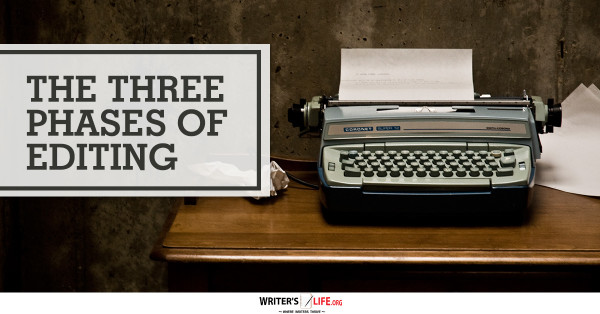- How To Tackle Jealousy In Creative Writing
- Common Submission Mistakes
- How To Stop Your Blog Becoming Boring
- The One Thing Every Successful Writer Has In Common
- How To Make Yourself Aware Of Publishing Scams
- Why Almost ALL Writers Make These Grammar Mistakes At Some Point
- 5 Tips For Authors On How To Deal With Rejection
- Top Mistakes to Avoid When Writing a Novel
- How to Avoid Common New Writer Mistakes
- 10 Mistakes New Fiction Writers Make
The Three Phases Of Editing

With the explosion of self-publishing and more and more books published each year, it is fair to say the market is becoming a little overcrowded.
There is so much competition to get your book noticed that often it can feel overwhelming to know where to start. Without a big publisher behind you and a large marketing budget, getting your book to stand out from the crowd is more challenging than ever.
Whether you are hoping to land a deal with a big publisher or agent, or you plan to self-publish, your book needs to make a good and lasting impression.
If your manuscript isn’t properly prepared, if it is full of flaws and grammatical errors, if it has gaping holes in the plot or a huge number of inconsistencies then an agent or publisher is going to find it hard to take you seriously.
Even if you decide to go it on your own, if your book doesn’t read well and has a number of mistakes your readers won’t be too forgiving either. While readers may accept the odd error here and there in a self-published novel, you can’t expect them to pay for a book that 's hard to read because it is littered with mistakes and errors in the plot.
So to get ahead of the crowd, you need to get your book in the best shape possible before you decide whether you want to try and get a publisher or agent interested, or market it yourself.
The more polished your book is, the better chance you have of readers leaving you positive comments, recommending your book to their friends and seeing sales increase.
Here are three phases every writer should go through to edit their book.
1 Check the structure
Your stories structure needs to be solid, and it is an easy thing to overlook when you get to the editing stage. Many writers are so (rightly) pleased with themselves to have finished their book, that they don’t go back and thoroughly check that the story stays strong throughout.
Ensuring your book is error free is one thing, but this isn’t enough if the plot is weak. Often it can be difficult to recognise if you have become too immersed in the story yourself. Getting a partner or professional to critique your work from an impartial point of view can be extremely useful, and they can point out errors and inconsistencies that you simply cannot see.
2 Go through your work line by line
While this may be a painstaking process, if you are serious about making your book the best it can be then this kind of micro editing will help ensure that your book is error free.
Do this in short bursts so you don’t lose focus. Another useful way to do this is to read your work aloud. Sentences which we have grown accustomed to by reading them silently over and over again can suddenly sound clunky and strange when we hear them aloud.
Cut down sentences that are too wordy. Often we stuff our writing with unnecessary words and phrases when we are trying to hit a writing goal, or when we are just trying to get the story down.
This stage of editing is where you clean up your prose and make each sentence count. Pay particular attention to your punctuation too, are you guilty of excessive exclamation marks?! Can you not stop asking questions?!
Make sure you recognise where you need to use punctuation, and where it just seems awkward and forced.
3 Find a professional
If you want to be as sure as you can be that your book is perfect before you send it out into the world, you may need to employ the services of a professional.
While this costs money, finding a good editor can make a huge difference to your book, and how it is received.
Finding a good editor can be tricky. Ask friends and other writers for recommendations, look for excellent testimonials, or join a writing group through Google, Yahoo or LinkedIn and ask them to help you with your search.
A good editor should be able to provide several references from satisfied clients. Don’t be afraid to ask them questions either - you need to ensure they are right for you. An editor is someone you should be able to form a good working relationship with, so they need to be someone you feel positive about on a personal level too.
Going through these three phases of editing stage by stage will give your book the best possible start in life! So next time you have finished a piece of work, why not give them a go and see what a difference it makes to your writing and the reaction of your readers too?






























